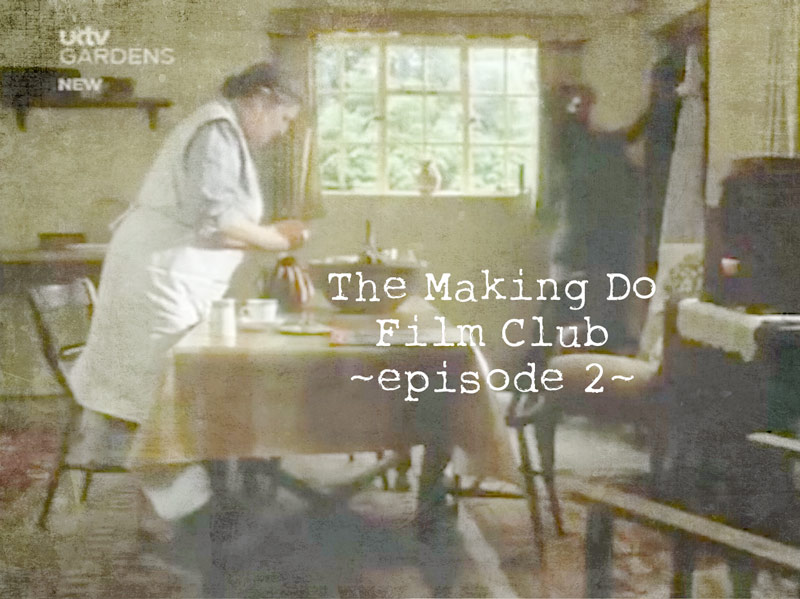 For our second week, I am adding the first episode in another series called The Wartime Farm. I watched both series this summer and gleaned so much goodness from both (and can’t remember what I gleaned from where : ) that it seems a good idea to watch both. As someone mentioned, the Wartime Kitchen and Garden episodes are too short, so this will round out our studies. I warn you tho’, the second series isn’t as gentle as the first. There is the somewhat dramatic music and sometime contrivance that is so common with reality tv shows, but it is still very, very good.
For our second week, I am adding the first episode in another series called The Wartime Farm. I watched both series this summer and gleaned so much goodness from both (and can’t remember what I gleaned from where : ) that it seems a good idea to watch both. As someone mentioned, the Wartime Kitchen and Garden episodes are too short, so this will round out our studies. I warn you tho’, the second series isn’t as gentle as the first. There is the somewhat dramatic music and sometime contrivance that is so common with reality tv shows, but it is still very, very good.
Wartime Kitchen & Garden-episode two
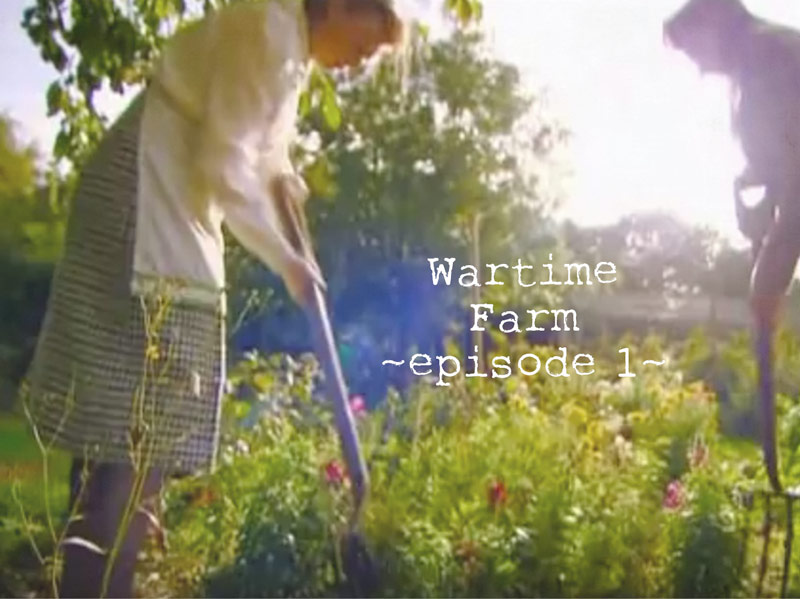 Looking forward to your thoughts!
Looking forward to your thoughts!
P.S. Last night, I started reading We are the Weather by Jonathan Safran Foer. It is very interesting and he is making connections in a way that I haven’t seen elsewhere, but that echo my own. He alluded to WWII for a long section, which makes me think he is going to be finding useful learning from it, as we are. I’ll keep you posted about it, but it is worth getting from your library, if you can.
P.P.S. Please do spread the word! You are welcome to use any of the film club photos, as well as our logo found here. So grateful for the sharing that has already been happening, in sidebars of blogs and mentions on Instagram and in newsletters.

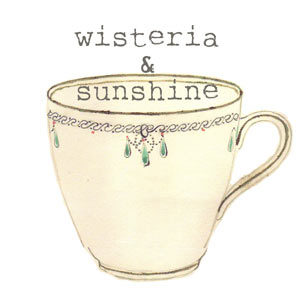
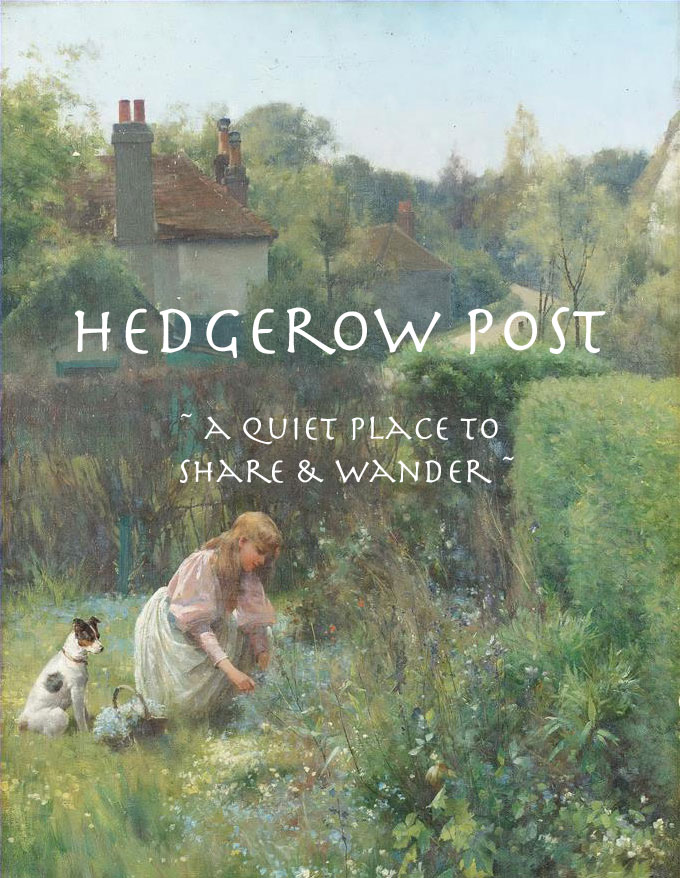
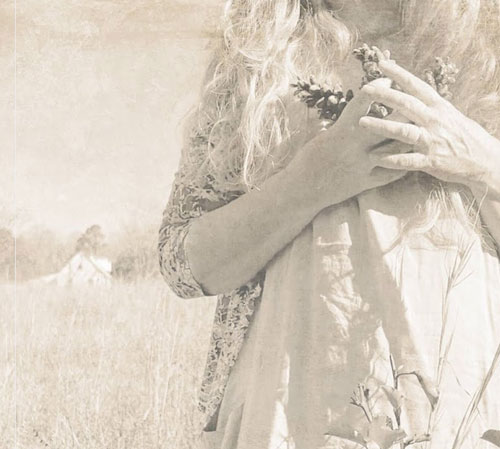
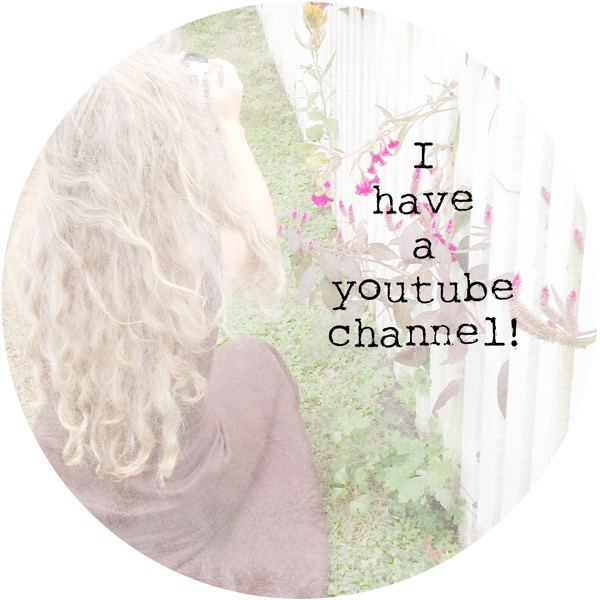
lesley October 29, 2019 at 3:28 pm
I watched the Wartime Kitchen & Garden episode while I had lunch today…I so appreciate it’s quietness!The bird song in the background is wonderful. My thoughts are these…
-I wish we had a Winston Churchill for the climate crisis that we could listen to regularly for short, wise messages. There are so many voices out there now, with different messages, and so much is visual. We don’t have that “all in this together” feeling.
-Did you hear the mention of listening to “The Kitchen Front” everyday? If I was retired, I think it would like to create a modern version of that.
-I really enjoyed the compost scenes, having always struggled with creating much for our garden. When I first watched this, it inspired me to make two squares for compost out of one our garden beds. It is much closer to the house than our old one and I have hopes for it…tho’ I won’t be using any of the additives they did. That time was when bought-in substances of all sorts were becoming more common in farm and garden. My comfrey patch is growing and will one day be a real help for my compost heaps. What do we think of the walking on them?
-If you listen carefully, there are always mentions of “sacrifice.” If that one thing could become less foreign to our modern lives, what a help that would be!
Anna October 31, 2019 at 11:44 pm
With regards to the idea of sacrifice, I have to admit that none of the changes I have made feel like a sacrifice at this point. I am just used to them and quite a few of them actually create a higher quality of living than what we had before (cooking from scratch, growing our own food, learning to make and mend our own clothes). More than sacrifice, I think people are afraid of change, or they conflate the two. When I think about the lifestyle changes still on my to-do list, most of them don’t seem like a sacrifice, they just seem like effort to change my habits. This is why I know I need to take it slow, make one or two changes at a time and create new habits instead of overwhelming myself and giving up.
Gracie October 30, 2019 at 9:41 pm
I’m enjoying these so much – thank you for the “film club.” I’m tempted to rush ahead and watch them all, and so to help me bide my time and go slowly I’ve got a different Rosamunde Pilcher WWII book (Coming Home) to listen to in the evenings. It’s not Churchill on the radio, but it’ll do quite nicely.
With regard to “sacrifice,” why is it, I wonder, that humans seem to need suffering or tribulation to be good or great? Without adversity, with plenty to eat and comfortable homes, we so quickly become idle pleasure-seekers. But with an enemy to confront, or danger threatening, or poverty or illness to bear up under, people really seem to become better and more human – brave, resourceful, compassionate.
Anna October 31, 2019 at 11:35 pm
Wartime Kitchen & Garden Ep. 2:
I had been feeling a bit guilty about pulling up various ornamental plants put in by our house’s previous owners, but I feel a bit of vindication in watching how people were encouraged to switch land over to agricultural use.
The bits about cooking cheaper cuts of meat are quite inspiring. We don’t eat much meat, but I do save (the rare) bacon fat as it lasts for a long time in the fridge. I was reading a book about growing a sustainable diet and one of my takeaways was how hard it can be to get fat if you don’t have a dairy cow or eat lots of meat. My favorite fat for cooking and baking is butter, but I don’t know of a local source for this. I do save the fat from when we roast a chicken, but I don’t love the taste and always end up throwing most of it out. Perhaps I need to figure out better ways to use it…
I wish we could get chickens, but our town leaves it up to the whims of your neighbors and we don’t have enough room. I’ve been thinking of Japanese Quail, but am focusing on building up the garden and food forest this autumn.
Wartime Farm Ep. 1:
I have been thinking about how many conveniences use extra energy, like the clothes dryer and dish washer, and I was trying not to rely on them. However, this episode has me thinking about “modern conveniences” in a whole new way. Certainly our floors are easier to clean, and the gas stove or slow cooker are quite easy to use. I’ve also been reading about different ways of cooking, like using a solar oven or a haybox, which seem like they might be more work, but once one was in the habit I think they would be easier and could work more like electricity-free slow cookers.
I was intrigued by the secret agent role of farmers, and it made me think that if people were to participate in local climate action groups with such fervor, what a force that would be!
Lesley November 3, 2019 at 1:06 pm
I made and used a haybox back in the late 1990’s when we kept goats and made cheese and yogurt. I mostly used it for yogurt, but think it’s a great idea. I use the same philosophy when I keep my french press of coffee warm behind some pillows on the kitchen sofa…probably not something you could do with children in the house. : )
But I do appreciate these shows putting the idea of even tiny acts of conserving into our minds.